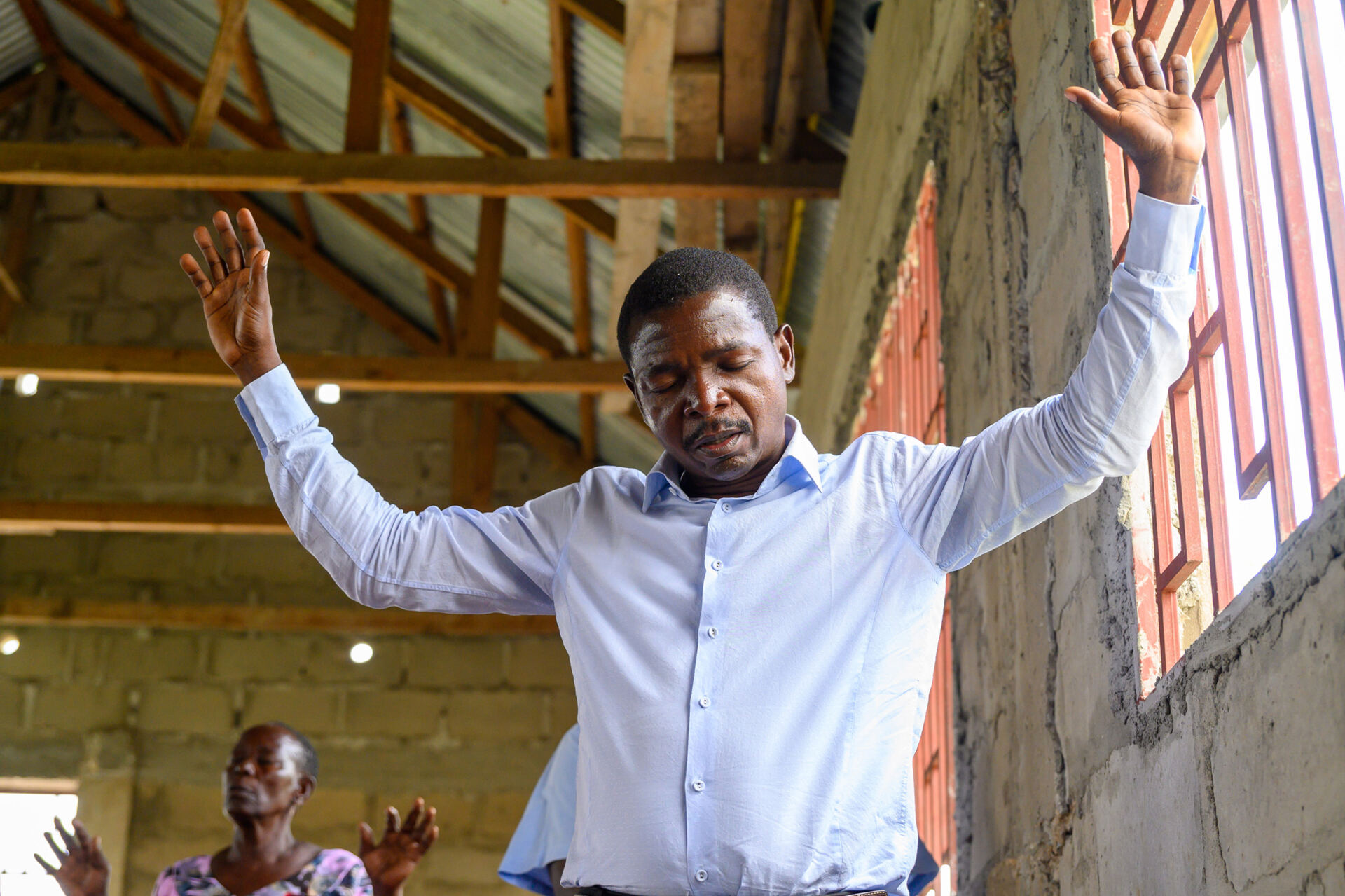What is the ultimate goal of missions?
Is it reaching the unreached? Is it planting churches? Is it practicing biblical evangelism? All of these are indispensable elements, but they are merely means, not the end. The end goal and ultimate purpose of missions is worship.
This worship is, as John Calvin said, “to ascribe and render to [God] the glory of all that is good, to seek all things in Him alone, and in every want to have recourse to Him alone” (from his tract The Necessity of Reforming the Church). The only reason the church has a duty to carry out global missions is because true worship has not yet become a global practice. The primary goal of the church is to worship God and to invite others to do the same.
As the Westminster Shorter Catechism asks and answers, “What is man’s chief end? Man’s chief end is to glorify God and enjoy Him forever” (Q. 1). All of creation was designed to bring glory to God, and man, uniquely created in the image of God, was fashioned as a worshipping being whose primary purpose is to render worship to his Creator.
The Creation Mandate in the first chapter of Genesis clearly, even if not explicitly, affirms this.
In verse 28, God says, “Be fruitful and multiply and fill the earth and subdue it and have dominion over the fish of the sea and over the birds of the heavens and over every living thing that moves on the earth.”
Among the many elements in this mandate is the command to subdue the earth. Given the context of the command, this is not an abstract subduing but a God-directed subduing. As a vice regent of God, Adam is to subdue the earth on behalf of and for the glory of God. In other words, Adam is created to worship God, and in his role as earth-subduer, he is to cultivate on earth that same worship for God. Adam is commissioned to direct every creature in all the earth to worship its Creator. There are significant and foundational similarities between the Creation Mandate and the Great Commission in this regard, and, though the latter is certainly more explicit and fleshed out, the command in the Creation Mandate is no less true. From the very beginning, worship was the goal, and it is still the goal as we strive to carry out the New Covenant commission given by Jesus in Matthew 28.
Psalms also reminds us over and over that worship is our chief end. These two passages especially speak to the primacy of worship within the context of missions:
Psalm 22:27-28: “All the ends of the earth shall remember and turn to the LORD, and all the families of the nations shall worship before you. For kingship belongs to the LORD, and he rules over the nations.” (emphasis added)
Psalm 86:8-9: “There is none like you among the gods, O Lord, nor are there any works like yours. All the nations you have made shall come and worship before you, O Lord, and shall glorify your name.” (emphasis added)
Since worship is the primary purpose for which we are created, we must ensure that it is also the primary goal of missions. We want to see churches planted. We want to see unbelievers converted. We want to see the gospel preached to the unreached. We want to see all these and more, but not for their own end. We want to see churches planted so that God’s people can gather together to worship him. We want to see unbelievers converted so that those who were haters of God can become worshippers of God. We want to see the gospel preached to the unreached so that they can hear the good news of the gospel and not remain in the darkness of paganism and atheism. Worship is the undergirding principle that makes church planting and evangelism such urgent matters.
It is also necessary to remember that the act of worship does not begin at conversion. We are worshipping beings by nature. We all worship something, whether that is the one true God, an amorphous “higher power,” ourselves, or some other idol of our own creation. We all worship; the question is who or what do we worship. Christian missions exists so that every tribe, nation, and language can worship rightly. Sin does not eradicate worship in the unregenerate; it perverts and distorts it. The regenerative work of the Holy Spirit through the ordinary means of the preached Word does not create worship where it did not formerly exist but redirects the worshipping creature away from the condemnation of false and idolatrous worship to the sacred blessing of true worship of the one true God.
This principle is important to remember for many reasons, not least of which is that it reminds us of our utter dependence upon the Lord in all we do. We can create ministries and plant churches. We can support missionaries and equip churches. We can write books on missiology and host conferences. We can translate Scripture into someone’s heart language or help raise funds for mission-critical projects. One thing we cannot do is cause a single person, bound in the darkness and death of sin, to become a genuine worshipper of the God of Abraham, Isaac, and Jacob.
If we do not remember the centrality of worship to missions, we may quickly find that we have made ourselves blind and ineffective by our sense of self-sufficiency. However, if we keep the centrality of worship at the forefront of our minds, we will not go more than an hour in any of our missional endeavors without falling on our knees before the Father, acknowledging our utter inability to carry out the commission he has given us and pleading for his sovereign hand to work in and through us.
Sin has depraved this world. We cannot imagine what it is like to live in a world free from sin or exist in bodies freed from sin, because a sin-soaked reality is all we have ever experienced. By virtue of original sin inherited from Adam, we are not, by nature, worshippers of God. Rather, as Paul so vividly states, we are “lovers of self, lovers of money, proud, arrogant, abusive, disobedient to their parents, ungrateful, unholy, heartless, unappeasable, slanderous, without self-control, brutal, not loving good, treacherous, reckless, swollen with conceit, lovers of pleasure rather than lovers of God” (2 Timothy 3:2-4). This is the darkness into which the church walks with the banner of her Savior.
As grave as these words are, the abiding hope is that they are not the end of the story for those Christ came to save. He has already won the war, and in these remaining battles we fight between now and his second coming, we take comfort in knowing the end of the story. Revelation paints a beautiful picture of redemption’s consummation.
“No longer will there be anything accursed, but the throne of God and of the Lamb will be in it, and his servants will worship him” (22:3).
Worship was Adam’s purpose and commission in Eden, and it will be the everlasting and beautiful reality of all the ransomed in glory. Thus, worship is the primary goal of missions. As we wait for that consummation and occupy the space between the already and the not yet, may the Lord grant that we labor faithfully to see the worship of God spread to the ends of the earth that all the elect may join with one voice to worship the Lamb for eternity.
Editor’s Note: For more on the topic of worship and missions, we recommend Let the Nations Be Glad by John Piper.





